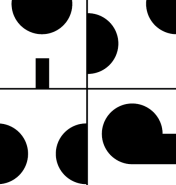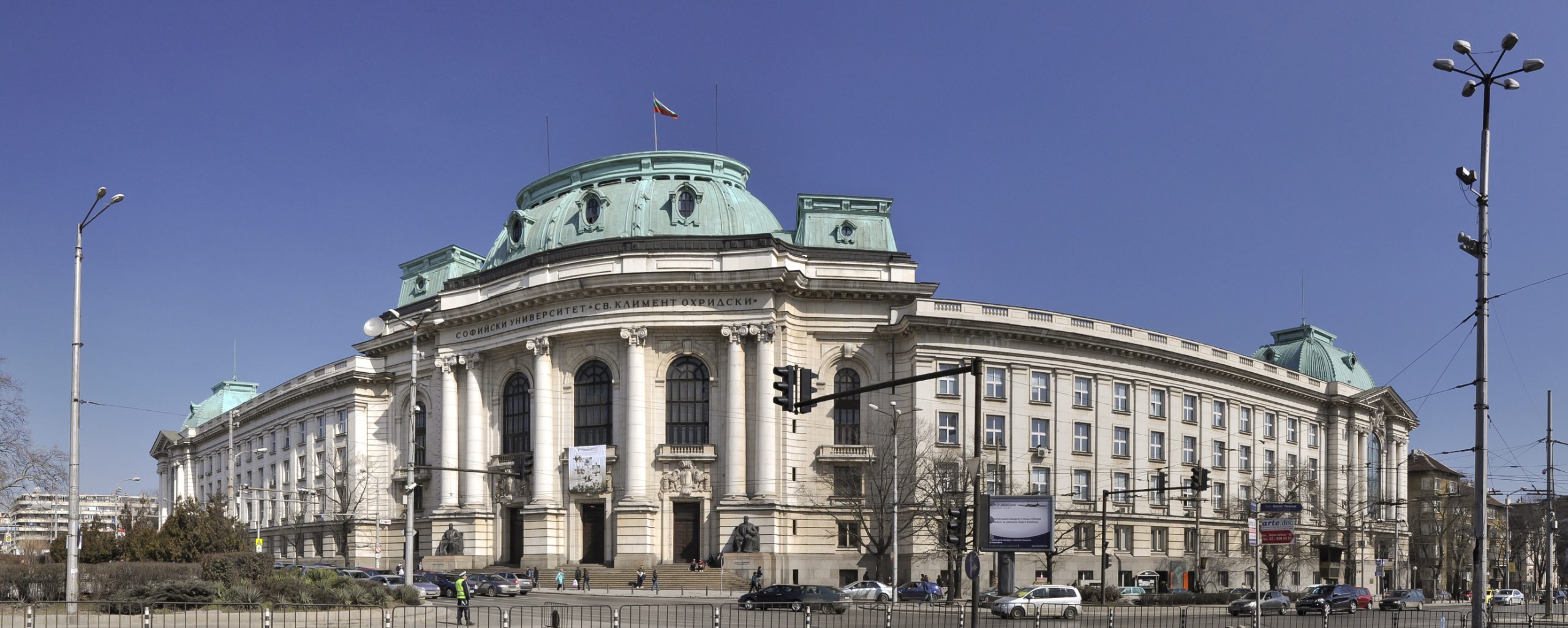As If, But Differently: Meditations on the Realisms of Our Times
1 – 2 December 2023
St. Kliment Ohridski University of Sofia
A forum dedicated to the 95th anniversary of the
Department of English and American Studies &
the 135th anniversary of St. Kliment Ohridski University of Sofia
Keynote speakers: Caroline Edwards, Paweł Frelik
The anthropologist Andrea Ballestero writes in A Future History of Water – an ethnography of various efforts to make access to water a human right – that the “practice of making a difference without resorting to radical difference or the Otherwise is a project that entails committing to the world as it is, but differently” (Ballestero 2019). This equates to giving up the dream of “stepping outside of what is” and, instead, engaging subversively with the as is, with the material-semiotic specificities that structure the world and delineate potentialities for change.
Taking inspiration from Donna Haraway’s creative wordplay on the abbreviation sf – Science Fiction, Speculative Fabulations, String Figures, So Far – we might extend her series with another playful member: aS iF (Haraway 2016). Speculative fictions imagine an as-if framework within which one can begin to deconstruct the current socio-political imaginary and to reconstruct new ones, new ways of being. A convergence of these two methods – of as-is and as-if – might therefore be captured by the synthetic phrase “as if, but differently”: imagining a fictional Otherwise that is actually an instrument for uncovering hidden knots of tension in the real world and for coming up with stories that knot differently in the material-semiotic here-and-now, to borrow once more from Haraway’s work.
Science fiction is one the realisms of our times, according to SF writer Kim Stanley Robinson (Robinson and Feder 2018), and perhaps the contemporary situation of overdetermined crises calls for multiple new realisms: to be able to represent reality as if the world actually is in danger of coming to an end; as if nonhumans are indeed sentient and might possess their own narrative perspective, and even voice; as if monstrosity is really rooted in history and not in metaphysics; as if another world is possible even if we cannot start from scratch on a utopian island. These new realisms must come to terms with what Amitav Ghosh has called “the great derangement” – humanity’s collective inability to come to terms with large-scale changes in climate and the biosphere, or rather the inability of dominant cultural forms to narrativize our being in a sane way that bolsters our chances for survival and for thriving in a complexly interconnected global world (Ghosh 2018).
We invite scholars and students to meditate together on the capacity of literary and cultural artefacts to provide new ways of thinking realistically about our changing world. This might mean science fiction becoming almost indistinguishable from the imminent reality of a climate-changed Earth, as in Kim Stanley Robinson’s The Ministry for the Future (2020), or the mechanics of the bourgeois realist novel being exapted to tell a fundamentally different story – that of forests, as in Richard Powers’ The Overstory (2018); it might mean retooling epic fantasy to tell stories of oppression and rebellion, as in N. K. Jemisin’s Broken Earth series (2015–7), or retooling horror – for the purposes of destabilizing the figure-ground matrix that typically characterizes humanity’s perceived relation to the environment, as in Jeff Vandermeer’s Annihilation (2014). The Gothic, magical realism, postmodernism, mythological fiction – any as-if fictional framework can in our present times be thought of as capable of going beyond mere representation, of becoming an apparatus for grasping the as-it-is reality of the world in surprising and productive ways (Wark 2016).
Under an “as if, but differently” approach, the study of the genealogy of genres and forms becomes invested with a renewed sense of urgency. Such a study might focus on the various discursive forces that shape fiction and their unceasing entwining; and this in turn might entail a literary sociology of the contact between these discursive practices. The “contact zones” (Pratt 1991) where these practices meet are inevitably structured by relations of power, but they also lead to novel and unexpected assemblages (Haraway 2008). Such contact zones in literary and cultural products are potentially present at any event of hybridization and of attempting to imagine differently at the site where discursive practices and communities meet anew: in speculative nonfiction and science fiction; in indigenous futurisms such as Afrofuturism; in fanfiction and hypertext fiction, and surely in fiction co-written with large language models like GPT-3 and ChatGPT that subvert the formal and aesthetic foundations of the literary text. Modeling as-if genres and modes by basing one’s analysis in the history of contact zones makes theory itself more interesting and useful: such theory is justified in its aspirations to study not only literary and cultural forms, but also the forces that produce them and that they in turn mobilize to produce changes in the world. In short, thinking “as if, but differently” invites us to meditate on the totality of our world and its future histories, of which stories are an integral part.
References:
Ballestero, Andrea. A Future History of Water. Durham, NC: Duke University Press, 2019.
Ghosh, Amitav. The Great Derangement: Climate Change and the Unthinkable. Penguin UK, 2018.
Haraway, Donna. When Species Meet. Minneapolis: University of Minnesota Press, 2008.
———. Staying with the Trouble: Making Kin in the Chthulucene. Durham, NC: Duke University Press, 2016.
Jemisin, N. K. The Fifth Season. London: Orbit, 2015.
———. The Obelisk Gate. London: Orbit, 2016.
———. The Stone Sky. London: Orbit, 2017.
Powers, Richard. The Overstory. New York: W. W. Norton & Company, 2018.
Pratt, Mary Louise. “Arts of the Contact Zone.” Profession vol. 91 (1991): 33–40.
Robinson, Kim Stanley. The Ministry for the Future. London: Orbit, 2020.
Robinson, Kim Stanley, and Helena Feder. “The Realism of Our Time.” Radical Philosophy 2.01 (2018).
Vandermeer, Jeff. Annihilation. New York: Farrar, Straus & Giroux, 2014.
Wark, McKenzie. Molecular Red: Theory for the Anthropocene. London: Verso Books, 2016.
Research topics (may include but are not limited to):
- science fiction and other speculative fictions as “hybrid genres,” their genealogies, current and potential uses;
- reappropriation and/or exaptation of established literary forms;
- enhanced literature, digital-born literature;
- climate fiction and environmental fiction;
- utopian literature;
- “realistic” representations of nonhumans and of human enhancement;
- stories about/by artificial intelligence;
- indigenous futurisms;
- feminist speculative fiction;
- queer speculative fiction;
- interactive fiction;
- speculative nonfiction.
Submission types:
Papers (15 minutes), panels (1 hour and 15 minutes), artistic installations, performances, and readings of original work on the event’s theme.
Deadline for submissions:
1 May 25 June 2023
Confirmation of acceptance:
30 June 2023 7 July 2023
Submissions must include:
- First name and family name of the presenter
- Institutional affiliation of the presenter
- Presenter’s email address
- The title of the proposed paper/panel/performance/reading
- A 350 words’ abstract of the proposal
- A 200 words’ biographical note of the presenter
- Keywords
Proposals to be submitted to:
The official language of the conference is English.
The event will be held in person only.
Conference fees:
Regular fee: 40 EURO
Reduced fee (doctoral students): 20 EURO
Students (at the BA or MA level): free
Keynote Speakers
Dr. Caroline Edwards
Caroline Edwards is Senior Lecturer in Modern and Contemporary Literature, Department of English, Theatre and Creative Writing at Birkbeck, University of London. Her research focuses on the utopian imagination in contemporary literature, science fiction, apocalyptic narratives, and Western Marxism. She is author of Utopia and the Contemporary British Novel (Cambridge University Press, 2019), which examines temporal experience and utopian anticipation in contemporary texts by British writers. Her work has also led to two co-edited books of essays: China Miéville: Critical Essays (Gylphi, 2015) and Maggie Gee: Critical Essays (Gylphi, 2015). She is currently working on her second monograph, Hopeful Inhumanism: The Elemental Aesthetics of Ecocatastrophe, which examines strangely hopeful moments of inhuman collaboration within the elemental contexts of the lithic, the mycological, the arboreal, and the hydrological.
Dr. Habil. Paweł Frelik
Paweł Frelik is Professor and the Leader of Speculative Texts and Media Research Group at the American Studies Center, University of Warsaw. His teaching and research interests include science fiction, audiovisual media (film, television, video games, music video), and unpopular culture. He has published widely in these fields, serves on the boards of Science Fiction Studies (USA), Extrapolation (USA/UK), and Journal of Gaming and Virtual Worlds (UK), and is the co-editor of the New Dimensions in Science Fiction book series at the University of Wales Press. In 2013-2014, he was President of the Science Fiction Research Association (USA), the first in the organization’s history from outside North America. He now serves as President of the International Association for the Fantastic in the Arts (USA). In 2017, he was the first non-Anglophone recipient of the Thomas D. Clareson Award.
Organizers:
Dr. Alexandra Glavanakova
Dr. Alexander Popov
Dr. Rayna Rossenova

